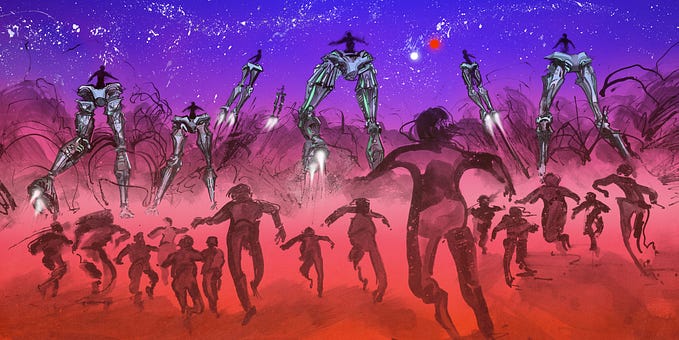Member-only story
Facebook’s Metaverse Wants to Strengthen Our Relationship With the Internet
It’s not just a virtual world that we can step into, but one we can embody ourselves

While billionaires Richard Branson and Jeff Bezos took their space-crafts for a spin into outer space, another billionaire focused on the challenge of competing in an entirely different universe. The driving ambition to expand and explore is driven by a primal urge to escape our origins and reach for the next frontier. For Mark Zuckerberg that next frontier is the metaverse.
Mark Zuckerberg is betting on the metaverse as the successor to today’s mobile internet. The Verge recently reported Zuckerberg’s announcement that Facebook would strive to build a metaverse — a maximalist, interconnected set of experiences, spanning social presence, office work, and entertainment. This endeavor is a pivot from the company’s focus on social networks to a hybrid where consumers can ultimately embody themselves in virtual environments.
As John Herrman and Kellen Browning explained in their New York Times piece, the metaverse has often, in fiction, been presented as a utopian frontier where social norms and value systems can be written “anew, freed from cultural and economic sclerosis”.
From another vantage point, the metaverse can also appear dystopian — the ultimate destination of our collective failure to fight our social media’s impulses.
The idea behind metaversality isn’t a new one. It’s been in the works for years, One of the most famous visions of this idea is depicted in Neal Stephenson’s 1992 novel Snow Crash. The metaverse is used to describe a virtual reality world, where people go to live, work, and play in a full-sensory environment. It is an experience so immersive that it’s hard to distinguish from reality.
While the idea sounds like an element out of science fiction, fragments of this universe have been lingering, almost justifying their existence. Video games like Roblox and Fortnite, as well as Animal Crossing: New Horizons, have metaverse-like elements. So does social media. If you’ve attended a work meeting or party using a digital character that is able to operate across virtual reality platforms, then you have entered into…









